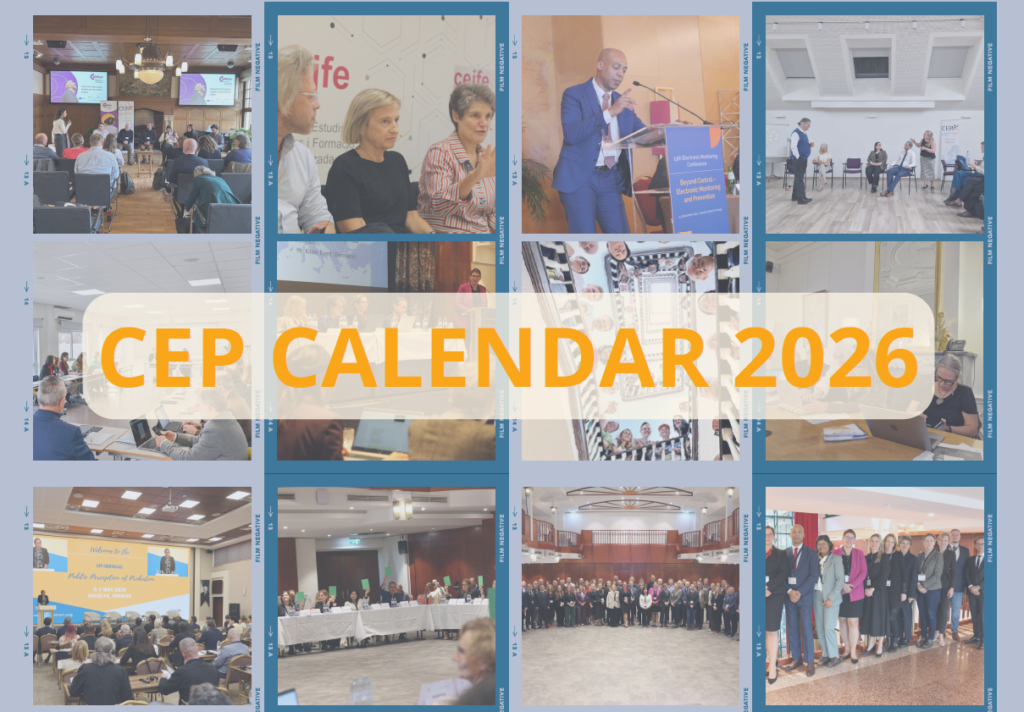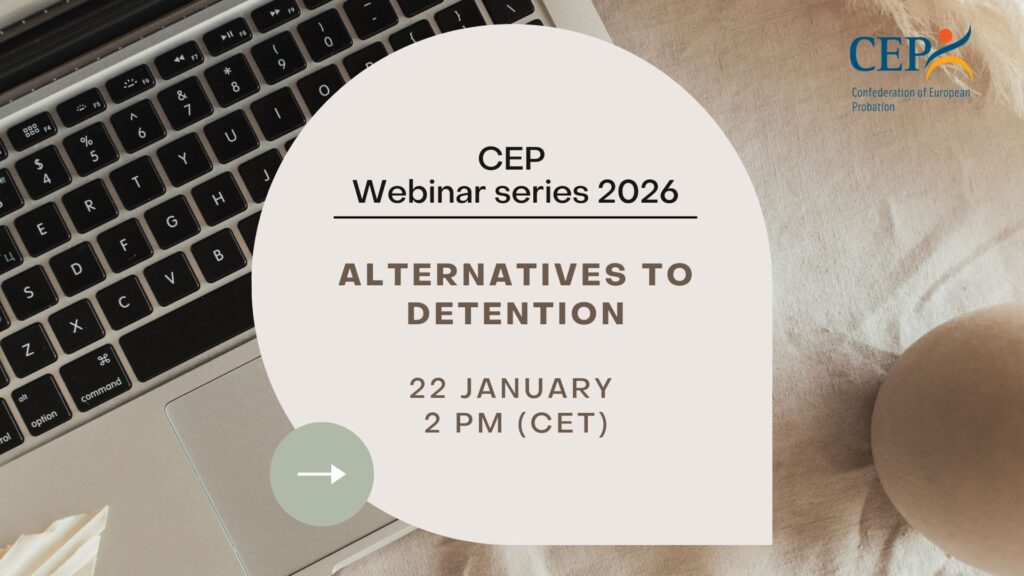Previous Article
News
The Roma helping Roma principle works
The vast majority of all Roma in the Czech Republic that received an alternative sentence did not fulfil their obligations. As a consequence they were sent to prison, which only increased the risk of re-offending and social exclusion, and which cost the Czech taxpayer 1000 Czech crowns a day (40 euro). A Czech NGO found an answer to this problem: train mentors from the Roma community itself and let them help, inform and motivate the offenders.

A young Roma man is sentenced to a community service for burglary. Then what happens? “Well, he needs to come to the first meeting with his probation officer”, says Marek Demner, coordinator of the Roma mentoring project of the Association for Probation and Mediation in Justice (SPJ), a Czech NGO that cooperate closely with the Czech Probation and Mediation Service (PMS). “In some cases that already is quite a problem. For example, they simply forget to come. Also, sentences are not always imposed by a judge in court. Sometimes it is sent in writing, But not to the address where the offender really lives. Or the offender is not able to understand the difficult language in which the sentence has been written.”
Are you sure?
Suppose the offender makes it to the first meeting. “Many probation officers tell me that they explain to their Roma clients all about the obligations that come with their community sentence. Do you understand, they ask them. Yes, they do. Are you sure? Yes, they are. But when they leave the room they have forgotten everything. They just said yes to get rid of this ‘white’ official.” Marek Demner thinks the reason for this behaviour must be found in the past. “This is a sensitive topic, but there are things that can be said. Many Roma are very oriented to the present moment. They don’t plan and they don’t think about the future so much. Historically the Roma were nomads, often forced to leave from where they were staying. Planning was often impossible. The communist regime forced them to settle, but they stayed outcasts in many ways. A lot of Roma traditions and behaviour originates out of fear for the Czech majority. Many Roma also have very strong feelings of distrust towards the non-Roma, especially towards state officials.”
A translator
What was needed, was a ‘translator’. Somebody who could explain in their own language (both literally and metaphorically) that they really have to fulfil the obligations of the community sentence in order not to be sent to prison. In 2004 SPJ started a Roma mentoring project in two regions. Marek Demner: “It was inspired by experiences of the Danish Department of Prisons and Probation. In later years we expanded the project to other regions. So far we have trained 132 Roma mentors, of which 75 are active at this moment. They were – and are – layman, not professionals. All mentors received a 60 hour training about working as a mentor, the judicial system, social work and effective communication. Furthermore there is a 40 hour training on the job.”
Good mix
When recruited the mentors SPJ made sure to get a good mix of men-women, young-old, etcetera. “The mentors attend monthly meetings with their supervisors from SPJ to discuss cases and solve possible difficulties”, explains Marek Demner. “This also contributes to the personal growth of the mentor. Some of the mentors were unemployed when we recruited them, others had their own business or already worked as a field social worker or crime prevention assistant. Quite a few mentors found regular jobs in the social field as a result of their mentorship.”
Jobs and houses
The mentors spend on average 10 to 20 hours a month on two or three clients. Marek Demner: “Their main task is to motivate clients to fulfil their obligations. They do this quite successfully. Now, over 50% of the offenders with a mentor fully comply. This was less than 25%. Mentors also support their clients in search for jobs and houses. That is very important to avoid social exclusion. The mentors collaborate closely with the Probation and Mediation Service (PMS), that selects the clients for the Roma helping Roma project. Sometimes offenders don’t fulfil their obligations for quite trivial personal or family reasons. Offenders can, for example, feel too ashamed to do community service in the place where they live. Cooperation between the mentor and the probation officer can then result in a decision by the judge to change the place where the community sentence must be served. Also, mentors can always find and contact offenders because they know them and their families personally.”
Funding
In the past seven years over 1200 Roma clients have been provided with the mentor service. Marek Demner: “We know that the Roma helping Roma principle works. But for us as an NGO, everything depends on funding. At this moment we have a grant from the European Social Fund that allows us to continue our work till 2013. We also received funds from the Probation and Mediation Service, the Ministry of Interior and several cities. We hope we will receive more funding to continue our successful project in the years after that and even to a expand it to the whole of the Czech Republic. And to use the skills of the Roma mentors for other purposes, such as to monitor hate crimes and hate violence. If we can continue our project, we think that Roma mentoring will in the long run lead to a systematic empowering of the Roma community.”

Related News
Keep up to date with the latest developments, stories, and updates on probation from across Europe and beyond. Find relevant news and insights shaping the field today.
New

CEP Events
CEP activity calendar 2026
20/01/2026
As we begin the new year, we would like to thank all CEP members, partners, and participants for your continued engagement and valuable contributions. Your involvement plays an essential role in shaping CEP’s work and activities.
We are pleased to share the CEP calendar for 2026, which provides an overview of the events planned for the year ahead. We look forward to continuing our collaboration and welcoming you to upcoming CEP activities throughout the year.
Thank you for being part of the CEP community.
New

CEP members, Gender-based violence
Interventions Alliance’s Eden House Recognized as Outstanding
15/01/2026
CEP is delighted to share that Eden House, an Interventions Alliance residential service for women with high-risk or complex needs on probation, has been rated “Outstanding” overall by HM Inspectorate of Probation. In 2022, Eden House was honored with the CEP Public Protection Award. Our sincere congratulations to the team for this remarkable achievement.
New

Education and Training
The Judicial Training Dashboard
14/01/2026
The European Training Platform (ETP) is a search tool for justice professionals. You can find self-learning materials on a great variety of EU law practice areas and related topics, as well as links to training providers’ homepages and course catalogues.
New

Technology
Communication on DigitalJustice@2030
13/01/2026
The EU’s competitiveness will increasingly depend on the digitalisation of all sectors, which will drive investment. Digitalisation and the deployment of artificial intelligence (AI) will be essential to the ability of public authorities to deliver high-quality public services, notably also in the field of justice. Europe’s Digital Decade is underway with the ambition that by 2030 the EU has all key public services available online. The ultimate aim will be to increase the efficiency of public services by making them digital by default, stimulating productivity.
New

Alternatives to pre-trial detention, CEP Events
Webinar on Alternatives to Detention – CEP Webinar Series 2026
13/01/2026
CEP is pleased to invite you to the first webinar in the CEP Webinar Series 2026, taking place on Thursday, 22 January 2026, at 14:00 CET. This webinar will introduce a unique programme developed by the Meuse Probation Service, which was awarded the CEP Award 2025 in the category of Rehabilitation and Social Inclusion (The Sue Hall Award).
New

Alternatives to pre-trial detention, CEP Events
CEP Webinar Series 2026
12/01/2026
In 2026 CEP launches a series of short webinars that will take place every third Thursday of January, March, May and November.
We sincerely invite all probation practitioners, social workers, managers, policy makers, researchers, students as well as colleagues from partners organisations to join and share your knowledge with us.
Subscribe to our bi-monthly email newsletter!
"*" indicates required fields
- Keep up to date with important probation developments and insights.

